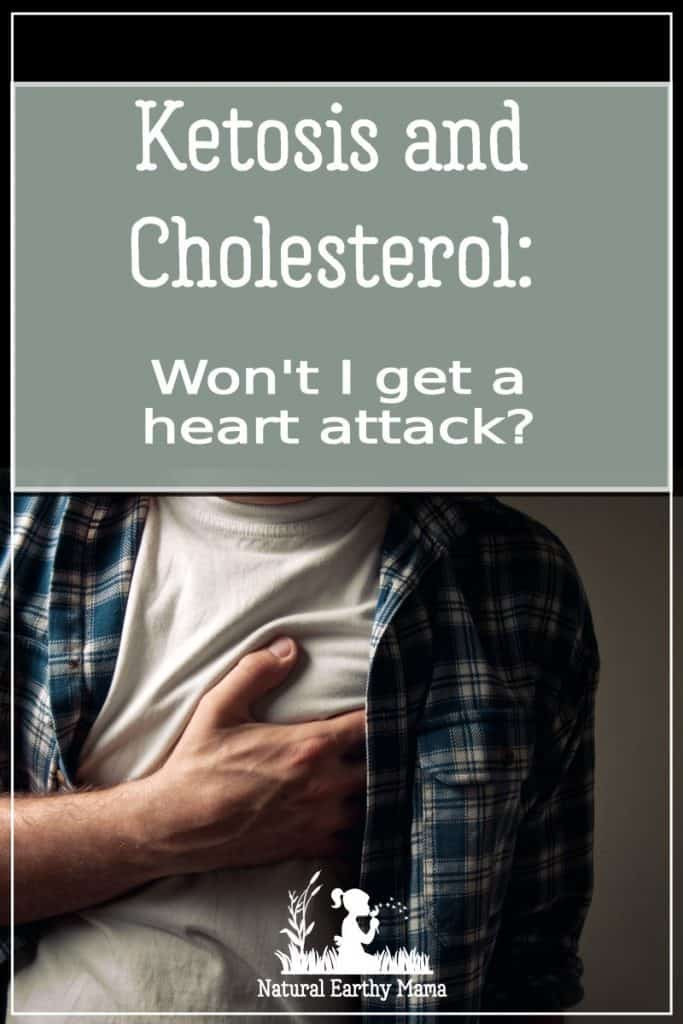 One of the most common questions when people are looking at the ketogenic diet for the first time is “won’t the keto diet give me a heart attack with all that fat??”
One of the most common questions when people are looking at the ketogenic diet for the first time is “won’t the keto diet give me a heart attack with all that fat??”
What we have taught about fat is all wrong, but it is in our psyche, and it is hard to shake. Here we will look at what is cholesterol and its role in our body and why eating fat will not cause a heart attack.
Please read: This information is provided for educational purposes only and is not intended to treat, diagnose or prevent any disease. We encourage you to make your own health care decisions in partnership with a qualified health care professional.
This post contains affiliate links, this means at no extra cost to you, we make a commission from sales. Please read
our Disclosure Statement
What are Lipids and Cholesterol?
We need to understand the roles fat, cholesterol, and carrier molecules called lipoproteins play in the body.
Fats, also known as lipids, are a diverse group of molecules with a “non-polar” characteristic that repels water. This means that you if you put a fat such as oil or grease in water they will not mix. In the human body, fats are most commonly found in the bloodstream in one of two forms.
1 Triglycerides
The first is triglycerides, a fatty acid that stores energy for later use. These long molecules can be broken down into other fatty acids and glycerol to create fuel for the body.
2 Cholesterol
The other important class of lipids in the body is a waxy substance called cholesterol. These molecules have a variety of functions in your body such as building hormones including estrogen and testosterone, maintaining the integrity of cell membranes, and aiding in the absorption of vitamins.
Your body produces all the cholesterol you need through the liver and other body cells. Typically, 75% of the body’s cholesterol is produced endogenously (internally) while the other 25% is from the food you eat.
Cholesterol is most commonly transported in the blood by molecules composed of fat and protein called lipoproteins. From least dense to most dense, they come in five forms: chylomicrons, very-low-density lipoproteins (VLDL), intermediate-density lipoproteins (IDL), low-density lipoproteins (LDL), and high-density lipoproteins (HDL). Because VLDL,
It is important to emphasize that while they are often referred to as “VLDL cholesterol”, “LDL cholesterol”, and “HDL cholesterol”, these molecules themselves are not cholesterol; they are cholesterol transporters.
Want some real Keto Diet Support? Join our free community!
The Impact of Carbohydrate Restriction on HDL Cholesterol
In a recent meta-analysis published in the British Journal of Nutrition by Bueno et al, researchers investigated the impacts of very-low-carbohydrate ketogenic diets (VLCKD) on key metrics of cardiovascular health including HDL cholesterol.
The authors defined a VLCKD as a diet lower in 50g of carbohydrates – lower than the daily recommended grams of carb consumption clinicians recommend to diabetics. They included 13 randomized controlled studies with a total of 1,415 subjects. All studies took place for at least a full year and all subjects included were over 18 years old and had a BMI of at least 27.5 kg/m2. In each of these studies, VLCKD diets were compared to low-fat diets.
As a result, the authors concluded that carbohydrate-restricted diets give cardiovascular benefits because they improve levels on HDL in the body.
A low-carb diet (<50g carb) is an effective method in raising HDL cholesterol when compared to traditional weight-loss diets that emphasize reducing fat intake.
RELATED POST: What can you eat on the keto diet
Doesn’t eating fat raise your bad cholesterol?
The best description I have found of this whole thing in action is this lecture by Dave Feldman. You should watch it.
Cholesterol and heart disease
The next issue to address is whether cholesterol levels have anything to do with heart disease. The short answer is no. Raised insulin levels and inflammatory markers are much better predictors of heart disease than cholesterol levels.
Here Dr. David Diamond looks at the actual data around heart disease, cholesterol and what is causing our illness. I suggest that you take some time to watch this too!

